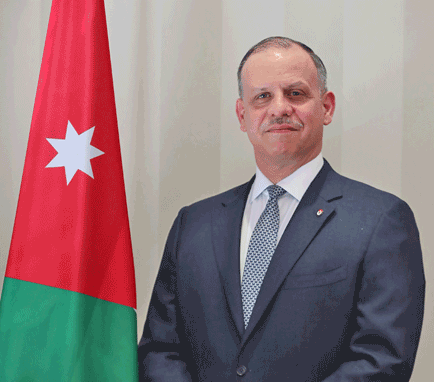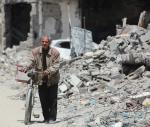You are here
Rio’s Olympic preparations boosted by World Cup
By AP - Jul 08,2014 - Last updated at Jul 08,2014
LAUSANNE, Switzerland — The smooth running of the World Cup has lifted the mood of Brazilians and given them the confidence to overcome delays and deliver the 2016 Olympics in Rio de Janeiro on time, the IOC’s point man on the games said Tuesday.
In an exclusive interview with The Associated Press, IOC Executive Director Gilbert Felli said the situation has improved since he was dispatched as a special troubleshooter for Rio two months ago. He said there is no reason to panic and that Brazilian organisers will complete the mountain of work still needed over the next two years — with constant monitoring.
Speaking in his office at the International Olympic Committee (IOC) headquarters in Lausanne, Felli said there are no plans to move any venues as some sports federations had feared, and he predicted that most construction projects will be back on schedule by the end of September.
“Of course it remains tense, very tense, but we should look with more optimism,” Felli said in his first extensive interview since being handed the Rio assignment in April. “Until the games are delivered I’m always concerned. But it’s not the case to say we’re not going to make it. ... My view is we will make it and the Brazilians will deliver excellent games. But we have to work every day for it. Nothing is a done deal.”
While serious concerns remain over tight deadlines, the shortage of hotel rooms and severe water pollution at the sailing venue, Felli said the World Cup has instilled a new sense of optimism in Brazil about organising the first Olympics in South America.
“The perception of the World Cup is that it’s positive,” he said. “We can see the reverse of the mood of the Brazilians about the World Cup... The perception of the Brazilians is much more positive. It’s good for the games. They have better trust in themselves to deliver the games.”
The buildup to the World Cup was also plagued by chronic delays, with some stadiums barely completed at the last minute. But since the tournament began, there has been no major organisational crisis.
“The risk is that they say: ‘You see, no problem, don’t worry because we did it’,” Felli said, adding that Rio Mayor Eduardo Paes is determined not to fall into that trap.
Felli said Paes told him: “I don’t want to be last minute to deliver the games. I got my lesson about the perception of the people about the World Cup. I don’t want to be in this situation. I want to be ready before.”
Part of the issue, Felli said, is a cultural one: Doing things at the last minute is customary for many Brazilians.
“They like adrenaline, to be pushed in the last minute on some issues,” he said. “So then we try to explain the games cannot be like this. We’ve been able to explain that.”
Felli was assigned by the IOC to tackle the Rio crisis after a meeting in Belek, Turkey, in April in which nearly 20 summer sports federations publicly voiced serious concerns over the delays. A special IOC task force was also formed.
“Personally I didn’t believe it was as bad as some have said,” Felli said. “I was not as alarmed.”
Since then, Felli has made two trips to Rio, staying for two weeks at a time. He is flying to Rio on Wednesday with IOC President Thomas Bach, who will attend Sunday’s World Cup final at the Maracana Stadium. Bach is also expected to meet with government officials and Olympic organisers during his stay.
“I think we have seen a change of approach since Belek,” Felli said. “There is a good understanding of our concerns now among the authorities. They have been taking action. But all of that has to be monitored on a daily basis and [they cannot] lose any time.”
The IOC executive board will review the Rio planning situation on Wednesday. Felli will give an update on his mission, while Rio organising committee chief Carlos Nuzman will make his latest progress report.
With his term as the IOC’s executive director of the Olympic Games finishing at the end of August, Felli will travel to Rio more often. He plans to stay in the city for extended periods but won’t move there full-time, at least not now.
“When you stay on the spot, you start to be part of the furniture,” he said.
Related Articles
With sports federations demanding a “Plan B” because of the chronic delays in Rio de Janeiro, the International Olympic Committee (IOC) said Wednesday it was “premature” to speculate about taking the 2016 Games away from Brazil.
The international basketball federation (FIBA) has renewed hope its street-inspired 3-on-3 game could yet be played at the 2016 Rio de Janeiro Olympics.
AMMAN — HRH Prince Feisal, member of the International Olympic Committee (IOC) Executive Board and president of the Jordan Olympic Committee

















